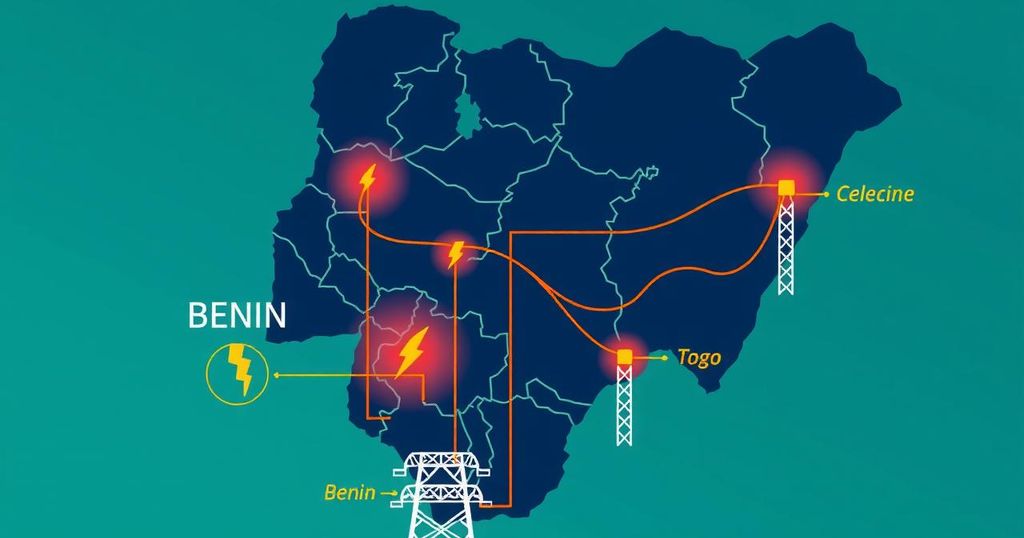- Nigeria is owed over $11 million by Benin and Togo for Q1 2025 electricity supplies.
- Only 34% of the $17.24 million billed to international customers was recovered.
- Niger Republic is the only country to fully settle its invoice of $3.03 million.
- Benin and Togo’s debt raises concerns over Nigeria’s cross-border electricity trade viability.
- NERC highlights the adverse impact of poor payment culture on Nigeria’s power market stability.
Nigeria’s Electricity Debt from Neighbors Raises Concerns
Nigeria is facing a significant financial issue with neighboring countries Benin and Togo, as it reports that they owe over $11 million for electricity supplied in the first quarter of 2025. Details from the Nigerian Electricity Regulatory Commission (NERC) reveal that out of a total of $17.24 million invoiced to six international customers, only $5.8 million has been successfully recovered. Notably, only Niger Republic has managed to settle its debt fully, having paid $3.03 million in total, leaving the situation with Benin and Togo particularly concerning as they account for the bulk of the unpaid amount.
Domestic Clients Struggle with Payment Culture
The issue of non-payment extends beyond international customers into local entities, casting a shadow over Nigeria’s domestic financial landscape. While some industrial clients have settled their electricity bills, many others have defaulted or only made partial payments, which has resulted in outstanding invoices amounting to hundreds of millions of naira. This situation illustrates the broader systemic challenges within Nigeria’s financial ecosystem, raising questions about reliability in the power sector, especially from its foreign partners in energy transaction agreements.
Regulatory Concerns Over Payment Defaults
NERC has called attention to the alarming trend of payment defaults among major government-owned entities, which contributes to a cash flow crisis within the power market. They emphasize that this poor payment culture not only decreases trust in bilateral deals but also endangers future investments in the power sector, which is already grappling with liquidity issues. As energy demands continue to escalate across the region, ensuring adherence to payment obligations has become critical for Nigeria’s continuing role as a power supplier.
In summary, Nigeria’s significant debt owed by Benin and Togo for electricity in Q1 2025 underscores serious concerns regarding the financial reliability of cross-border energy transactions. Only a fraction of outstanding bills has been recovered, indicating potential liquidity crises impacting both international trade and domestic electricity supply payments. Experts are urging urgent reforms to enhance payment compliance and protect the integrity of Nigeria’s power market.






